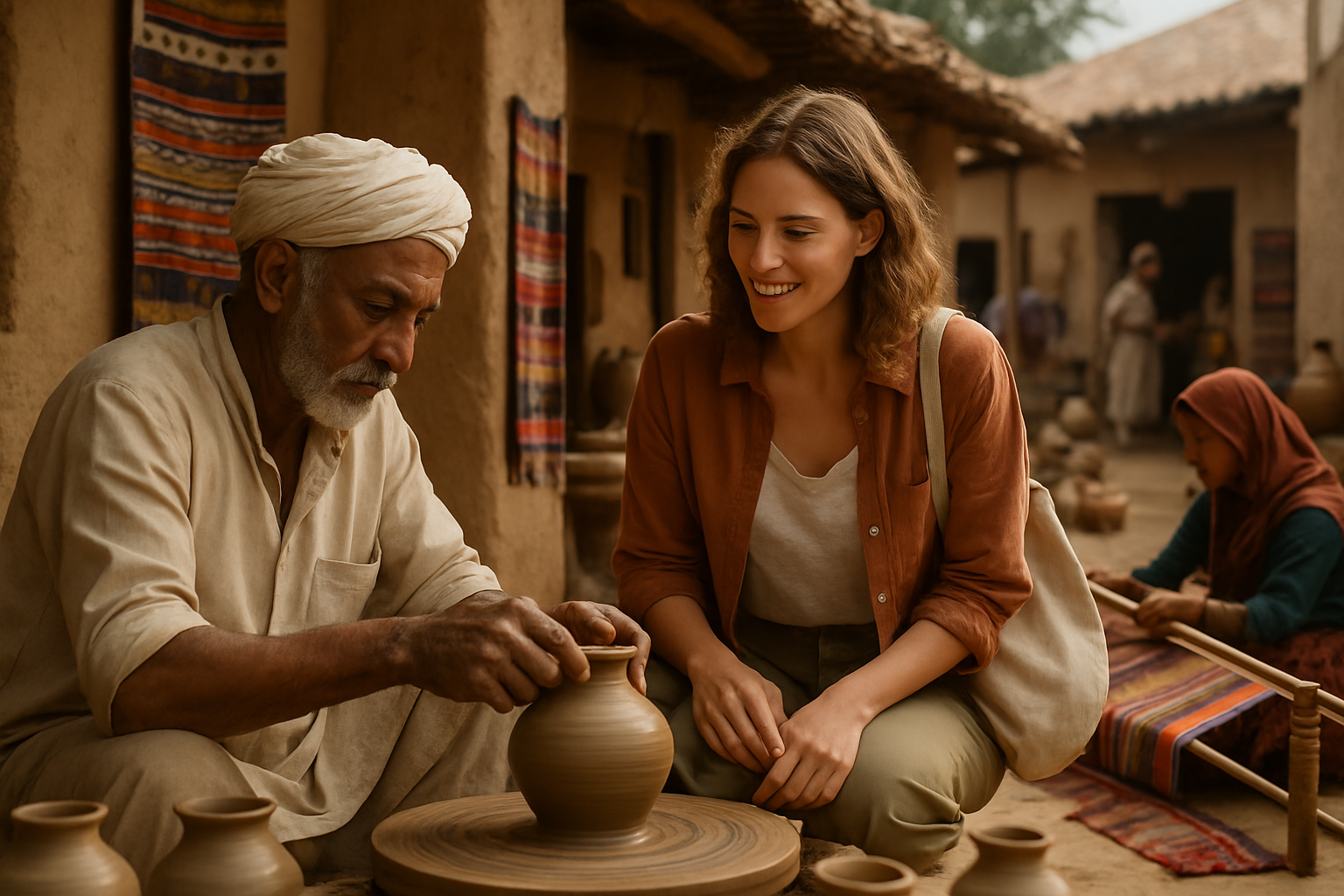Indigenous Tourism: Authentic Cultural Immersion Beyond Conventional Travel
Venturing beyond the bounds of ordinary tourism, indigenous travel experiences offer a profound journey into the heart of ancestral cultures worldwide. This growing travel movement connects visitors with indigenous communities through respectful engagement, traditional knowledge sharing, and immersive cultural practices. Far more than simple sightseeing, indigenous tourism creates meaningful exchanges between travelers and host communities while supporting cultural preservation and economic sovereignty. Sustainable, authentic, and deeply educational, these experiences represent travel at its most impactful and transformative.

The Rich Tapestry of Indigenous Tourism
Indigenous tourism encompasses experiences designed, owned, and led by First Nations, Aboriginal, Native, and tribal communities around the globe. This travel approach dates back to the late 20th century when indigenous groups began reclaiming their narratives and economic opportunities within the tourism industry. What began as small cultural centers and guided experiences has blossomed into sophisticated tourism operations spanning six continents. These ventures range from luxury eco-lodges in the Amazon rainforest to cultural immersion programs in Arctic communities, all united by authentic representation and direct community benefit.
The World Indigenous Tourism Alliance estimates that indigenous tourism grows approximately 15% annually, significantly outpacing conventional tourism’s growth rate. This expansion reflects travelers’ increasing desire for meaningful cultural exchanges and authentic experiences. Modern indigenous tourism balances tradition with innovation, as many communities thoughtfully integrate technology and contemporary approaches while maintaining cultural integrity. The Indigenous Tourism Association of Canada reports that 1 in 3 international visitors now express interest in indigenous experiences, demonstrating the growing mainstream appeal of this once-niche sector.
Cultural Preservation Through Visitor Engagement
Indigenous tourism serves as a powerful vehicle for cultural preservation in communities facing globalization pressures. By creating economic incentives around cultural practices, traditional knowledge, language use, and ceremonial activities, tourism helps younger generations reconnect with their heritage. In Australia’s Northern Territory, Aboriginal-led tours have revitalized interest in traditional bush medicine knowledge, while in New Zealand, Māori tourism enterprises have contributed significantly to language revitalization efforts.
Research from cultural anthropologists demonstrates that thoughtfully managed tourism can strengthen cultural identity rather than dilute it. When communities maintain ownership over their representations and narratives, tourism becomes a tool for cultural affirmation rather than exploitation. This stands in stark contrast to earlier models where indigenous cultures were displayed as curiosities without context or respect. Today’s indigenous tourism emphasizes agency, authenticity, and appropriate cultural sharing, creating boundaries around sacred knowledge while sharing accessible cultural elements with visitors.
Economic Sovereignty and Community Development
Beyond cultural benefits, indigenous tourism creates crucial economic opportunities in communities often excluded from mainstream development. The United Nations World Tourism Organization reports that indigenous tourism enterprises typically return 80-95% of revenue directly to local communities, compared to just 20% for conventional tourism operations. This economic model supports genuine community development while providing meaningful employment that doesn’t require cultural compromise.
Indigenous tourism enterprises take diverse forms, including guided experiences, accommodations, culinary ventures, artisan cooperatives, and cultural centers. What unites these businesses is community ownership and benefit-sharing. In the Colombian Amazon, indigenous-owned ecolodges employ dozens of community members while funding local healthcare initiatives. Similarly, the Sámi tourism ventures in northern Finland support traditional reindeer herding practices that might otherwise become economically unfeasible. These enterprises demonstrate how tourism can complement rather than replace traditional livelihoods when properly structured.
Responsible Engagement with Indigenous Communities
For travelers, engaging with indigenous tourism requires thoughtful consideration and cultural sensitivity. Authentic indigenous experiences differ fundamentally from commercial performances or superficial cultural displays. Responsible participation begins with selecting indigenous-owned or led experiences where communities maintain narrative control and receive direct economic benefits. Travelers should approach these experiences with humility, openness to learning, and respect for cultural protocols.
Common missteps include treating ceremonies as photo opportunities, expecting communities to perform culture on demand, or approaching experiences with preconceived notions based on stereotypes. Instead, travelers should practice informed respect—researching appropriate behaviors beforehand, asking permission before taking photographs, and being mindful of restricted knowledge or practices. The most enriching experiences come when visitors approach indigenous tourism as an opportunity for genuine exchange and learning rather than consumption of exotic experiences.
The Future Landscape of Indigenous Tourism
Indigenous tourism continues evolving with innovative approaches to sustainability, technology integration, and cross-cultural exchange. Many communities now incorporate virtual components, allowing pre-visit orientation or post-visit continued learning. Others develop sophisticated sustainability practices that protect fragile ecosystems while providing world-class visitor experiences. The Indigenous Tourism Collaborative of the Americas predicts continued growth as more communities develop tourism enterprises aligned with their cultural values and development goals.
Emerging trends include indigenous culinary tourism, where traditional food knowledge becomes a vehicle for cultural storytelling, and multi-nation indigenous tourism corridors that transcend colonial borders to reconnect traditional territories. Indigenous-led certification programs are also emerging to help travelers identify authentic, community-benefiting experiences. As climate change impacts many indigenous territories, some communities are additionally incorporating climate education into their tourism offerings, positioning indigenous knowledge as crucial to environmental solutions.
Essential Guidelines for Indigenous Tourism Experiences
-
Research communities before visiting to understand appropriate behaviors, dress codes, and cultural protocols
-
Choose experiences owned or managed by indigenous people rather than those merely featuring indigenous culture
-
Be present and participate fully—put cameras and devices away unless specifically invited to use them
-
Ask permission before taking photographs, especially during ceremonies or of individuals
-
Learn a few words in the local indigenous language as a sign of respect and interest
-
Be mindful of restricted or sacred sites, and never enter without proper permission
-
Purchase authentic art and crafts directly from indigenous artisans to support local economies
-
Respect when certain knowledge is not shared—some cultural elements are not meant for visitors
-
Consider timing—some communities only welcome visitors during specific seasons or outside ceremonial periods
Indigenous tourism represents travel at its most meaningful—a bridge between cultures that supports cultural preservation, economic development, and mutual understanding. When approached with respect and genuine interest, these experiences offer travelers insights available nowhere else while providing indigenous communities with sustainable economic opportunities aligned with their values and traditions. As the tourism industry continues evolving toward more responsible models, indigenous approaches offer valuable lessons about authenticity, sustainability, and the profound potential of travel as a force for positive connection.






